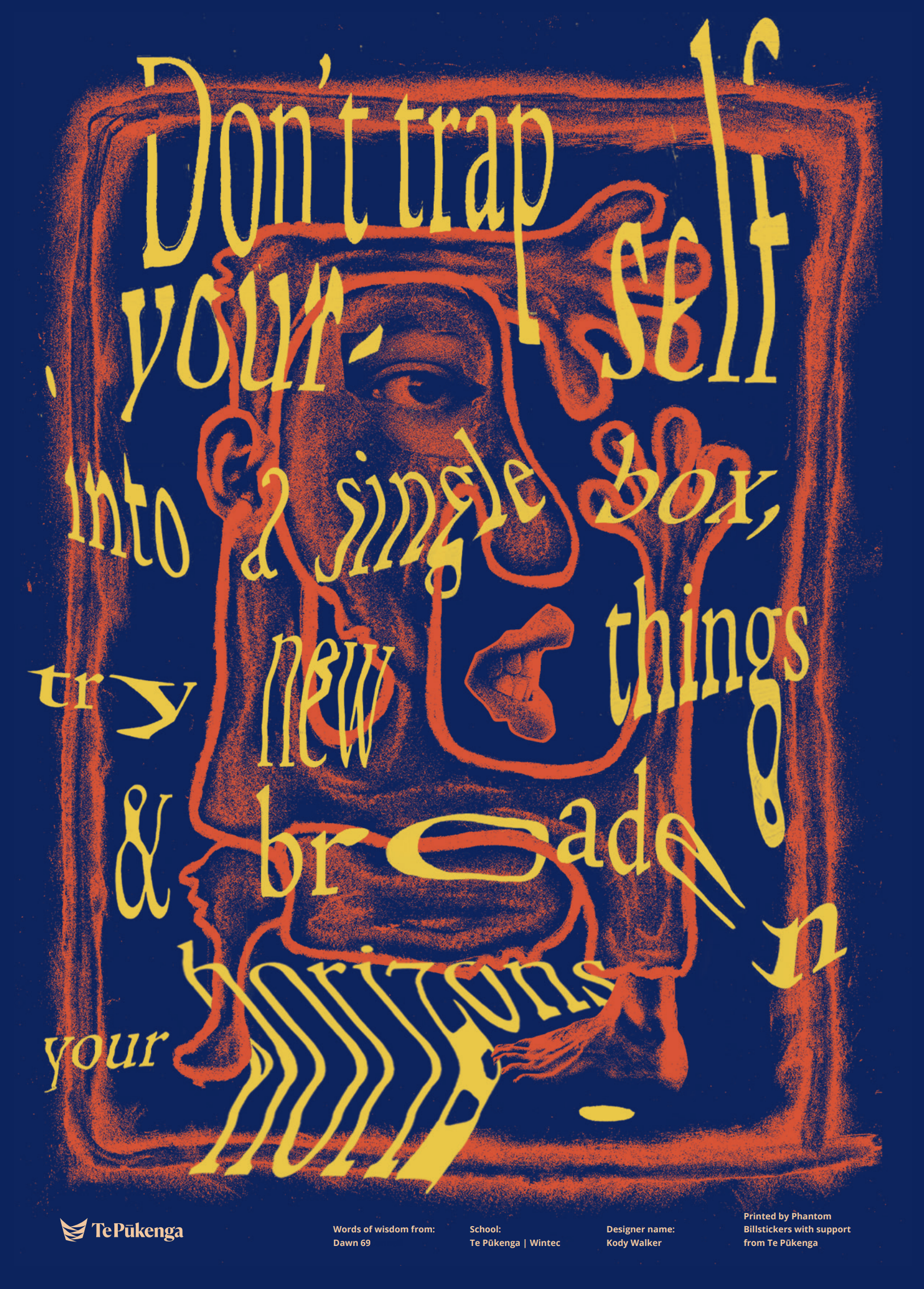Poster exhibition gives voice to elders and connects students across the globe

Image: Wintec | Te Pūkenga design students developed posters quoting wise words from their elders and exhibited their work in an exhibition titled Hear Us Out, at Ramp Gallery.
If you could give one piece of advice to the people of your city, in 20 words or less, what would it be? Design students across three countries proposed this question to elders within their community for a public good poster project called Hear Us Out.
Wintec | Te Pūkenga design tutor and researcher Luke McConnell says that he’s been dreaming up this project for some time – looking for a non-commercial way to incorporate the art of poster design. “The project aims to foster inclusivity by amplifying the elderly voices in our city through the medium of posters, he says. “Posters are a powerful medium to communicate to a public audience in a way other mediums cannot.”
Participating institutions across three nations included Wintec and Toi Ohomai (Aotearoa New Zealand), Nanyang Technological University (Singapore), and the University of Missouri-St Louis (United States of America).
The project has been displayed on public billboards in the Hamilton city centre, with the support of Phantom Billstickers and a selection of the posters has been exhibited at Wintec's Ramp Gallery and Toi Ohomai gallery, along with an accompanying book.
While the students were given a 20-word limit, a set format and a colour palette to work within, the outcomes are varied and diverse.
“The cross-cultural dynamic of the project set the stage for an additional layer of depth,” says Wintec | Te Pūkenga academic Mason Holloway, who has written an essay in response to the project, included in the accompanying book.
Holloway writes, “Projects such as Hear Us Out have real benefits in a design education, inviting students to venture beyond the barriers of industry constraints and urging them to explore design as a platform of communication that can do good.”
 Another outcome from the project allows for analysis of the responses and quotes from the elders who have been interviewed. McConnell developed a series of infographics looking into common themes, word frequency and location insights. He says, “From the quotes collected, the greatest number included messages of love, kindness, compassion and care, followed by advice mentioning motivation and ambition, and family and home.”
Another outcome from the project allows for analysis of the responses and quotes from the elders who have been interviewed. McConnell developed a series of infographics looking into common themes, word frequency and location insights. He says, “From the quotes collected, the greatest number included messages of love, kindness, compassion and care, followed by advice mentioning motivation and ambition, and family and home.”
Wintec | Te Pūkenga student Kody Walker says he found the process the most interesting part of the project, “being able to sit down with my elder to hear stories and touching statements that moved me. Being able to hear a different perspective/opinion about the same world I live in, was a great experience that I'll cherish forever.”
Walker says the experience seeing other students work from overseas was interesting. “Seeing the advice from different parts of the world, some similar to ours and others not so much.”
“Seeing my work in Ramp Gallery sitting next to other students' great work, gave me a nice little reminder to keep pushing my limits to see what I can create.”
Group Director Sam Cunnane says this project is exemplary of the project-based and interdisciplinary approach to teaching and learning at the Wintec School of Media Arts.
“This project is another great example of the work our design kaiako have been doing, linking together ākonga and members of the community, and in this particular case also building their collaborations internationally and within Te Pūkenga. It’s a great example of our value Manawa nui – reaching out and welcoming in, to support our communities,” says Cunnane.
